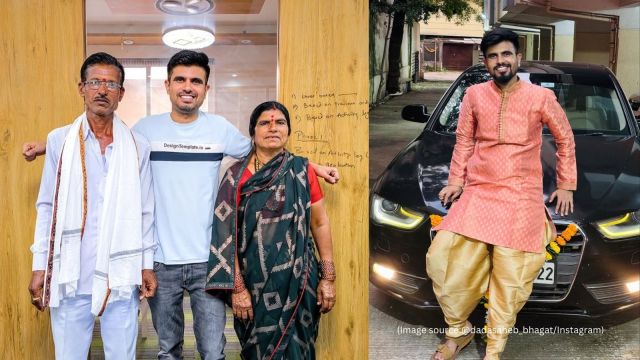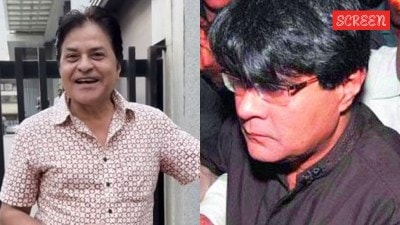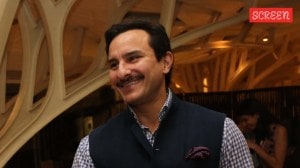Rs 4,000 a month to building ‘India’s Canva’: 10th-pass Dadasaheb Bhagat from Maharashtra village earns PM Narendra Modi’s praise
Bhagat comes from a drought-prone village in Beed, Maharashtra. With little focus on education in his family, he completed only the 10th grade and a basic ITI course for blue-collar work.
 Bhagat's journey also reached Shark Tank India, where he secured a deal with Aman Gupta
Bhagat's journey also reached Shark Tank India, where he secured a deal with Aman Gupta“All our dreams can come true, if we have the courage to pursue them.” Walt Disney’s words are inspiring, yet few actually live by it. Dadasaheb Bhagat is a striking example of someone who did. He went from humble beginnings to remarkable success, proving determination can overcome any obstacle.
As highlighted in a feature by MoneyControl, Dadasaheb hails from a small village in Beed district, Maharashtra, an area frequently struck by drought where farming is a struggle. Education wasn’t emphasised in his family, so he studied only until the 10th grade and later completed a basic ITI course, designed for blue-collar jobs.
He moved to Pune in search of work and started with a modest salary of Rs 4,000. Soon, an opportunity arose for an office boy position at Infosys, offering Rs 9,000, a significant increase for him. He jumped at the chance, unaware that this role would set the stage for his future.
The work was grueling, involving cleaning and running errands across a sprawling guesthouse. But while performing these tasks, Bhagat observed the Infosys employees working on computers, earning comfortably, and it sparked an important realisation: using one’s mind could lead to a better life.
Curious, he asked how he could get a similar job. People were skeptical given his 10th-grade education but suggested exploring fields like graphic design and animation, where creativity mattered more than formal degrees.
This advice struck a chord. As a child in boarding school, Bhagat had learned to draw by watching a painter create temple murals next door. Art came naturally to him.
Determined, he began studying design during the day while continuing his night shifts as an office boy. Within a year, he became a professional designer, earning a living through his creative skills rather than physical labour.
Rather than chasing a corporate job that required formal credentials, he decided to carve his own path. He launched his design company, but the journey wasn’t without hurdles. When the COVID-19 lockdown forced him to close his Pune office, he returned to his village. Life there was simple, and expenses were low, allowing him to focus fully on developing his product.
Facing poor electricity and internet connectivity, he and his team moved to a hill near a cowshed and set up a makeshift workspace. From this remote spot, his company, Design Template, began to take shape. He even trained local children in design, gaining attention for his work. His story was eventually highlighted by news outlets and earned praise from Prime Minister Narendra Modi as part of the ‘Make in India’ initiative.
Today, Design Template offers design resources comparable to global platforms like Canva, aiming to reduce India’s reliance on foreign software while providing world-class, India-focused design tools.
Bhagat’s journey also reached Shark Tank India, where he secured a deal with Aman Gupta, founder and CMO of Boat, selling 10 per cent equity against an investment of Rs 1 crore.
In an interview with Indianexpress.com, he recalled, “It was very exciting, something I had never imagined. I went in and the energy was very good. I started speaking, but after the first two sentences I went blank. Radhika Gupta gave me water, and Peyush advised me not to pitch like a formal presentation. It took me about 10 minutes to feel normal again.”
- 01
- 02
- 03
- 04
- 05































